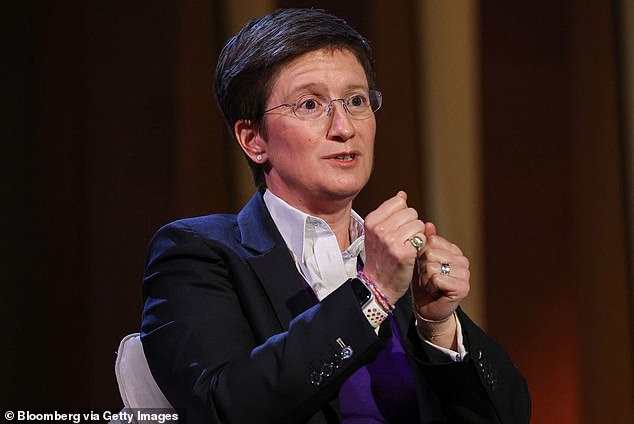The head of the London Stock Exchange yesterday joined calls for Britain’s “pernicious” stamp duty on share trading to be scrapped amid growing frustration that the tax is holding back investment.
Julia Hoggett attacked the tax, which forces investors to pay a 0.5 per cent tax when they buy British shares, although they pay nothing if they invest money in foreign companies.
“We shouldn’t be taxing our own investors to invest in our own economy and that’s one of the things I think needs to be changed,” he said. “This is much more in the spotlight than it has been in a long time.”
Stamp duty is seen by many as a key factor in holding back the British stock market, after companies such as chip designer Arm and gambling group Flutter decided to move to New York.
Flutter boss Peter Jackson said last week that cutting stamp duty would be a game-changer and make the UK more attractive, while Stephen Bird, head of asset manager Abrdn, has said the tax It is “as unpatriotic as it is economically destructive.”
Frustration: LSE boss Julia Hoggett (pictured) has become the latest senior City figure to take aim at stamp duty on trading in British shares.
Hoggett’s comments come amid much soul-searching over the stock market’s inability to attract new companies while losing others to rival markets.
London has suffered a drought of those wanting to go public, while many of those already listed are seen as undervalued and vulnerable to foreign takeovers.
However, signs of life have emerged with the FTSE 100 climbing record levels and sparking speculation that companies such as fast fashion giant Shein and diamond company De Beers could launch initial public offerings (IPOs) in Britain.
In a speech at a City conference, Hoggett noted that the combined value of London-listed companies was £1.9 trillion greater than that of the next largest European exchange.
And he pointed out that the exodus of companies was not an “exclusively British phenomenon”, since a similar trend is observed in the United States.
But Hoggett, who leads a task force to revitalize London as a listing venue, acknowledged that “our markets have not evolved as well as we could have done to serve the UK’s domestic economy and the needs of the extraordinary businesses we create in the United Kingdom”. .
And he pointed out the “pernicious effects of stamp duty.”
“In this country we charge retailers (investors) and pension funds to buy Aston Martin, but we don’t charge them to buy Tesla or Porsche,” he said.
“That kind of perverse tax structure is much more in the spotlight now. And believe me, I won’t lose sight of it.
Hoggett also said the “thorny issue” of executive pay needs to be addressed, suggesting that shareholders trying to control large pay packages for chief executives could be damaging the ability to attract top companies.
It may mean that companies have to give an explanation or take a “naughty step.”
He said that since his task force raised the issue, the remuneration committees that decide how much bosses earn had shown “a much greater willingness… to sit on what I call the bad step.”

